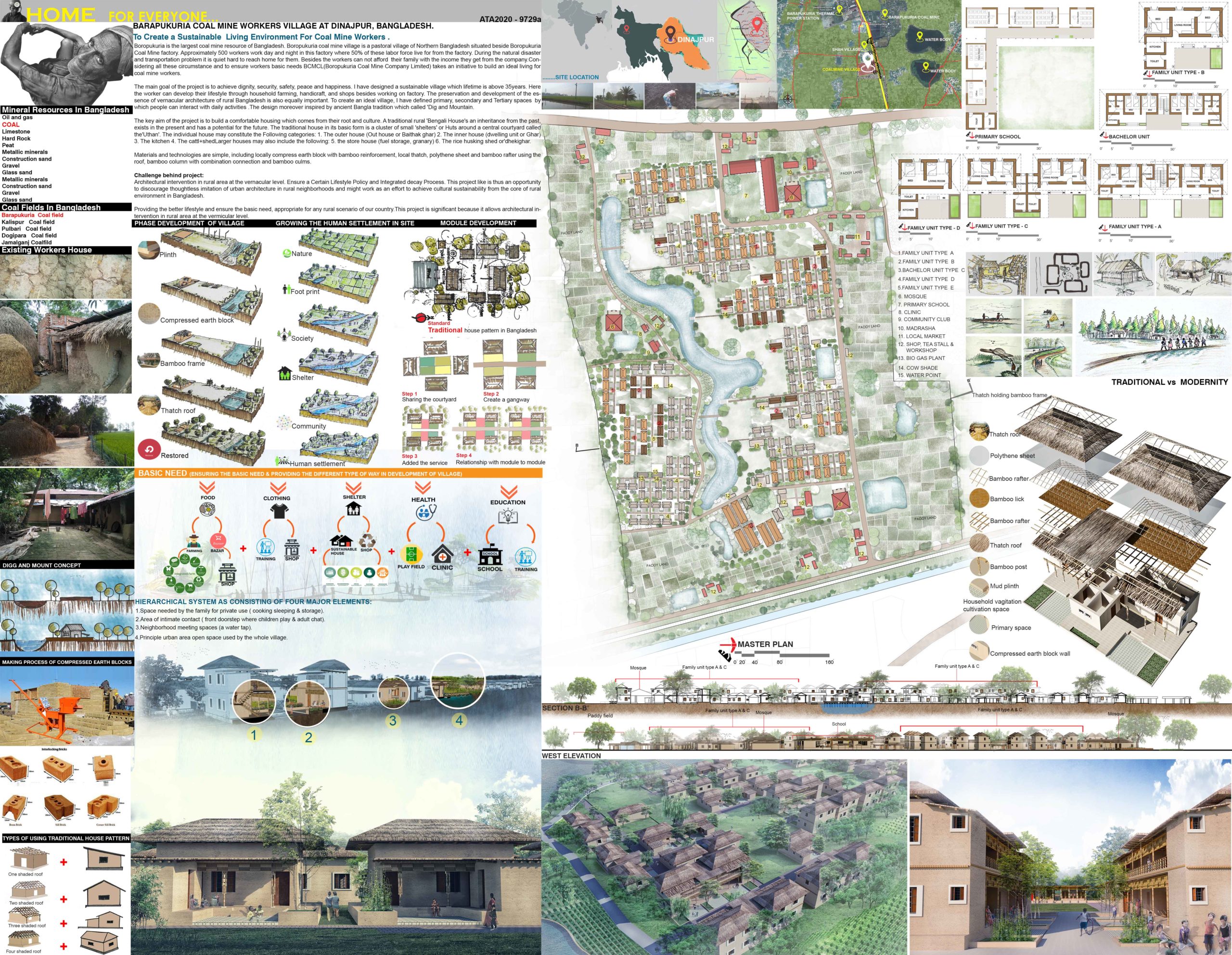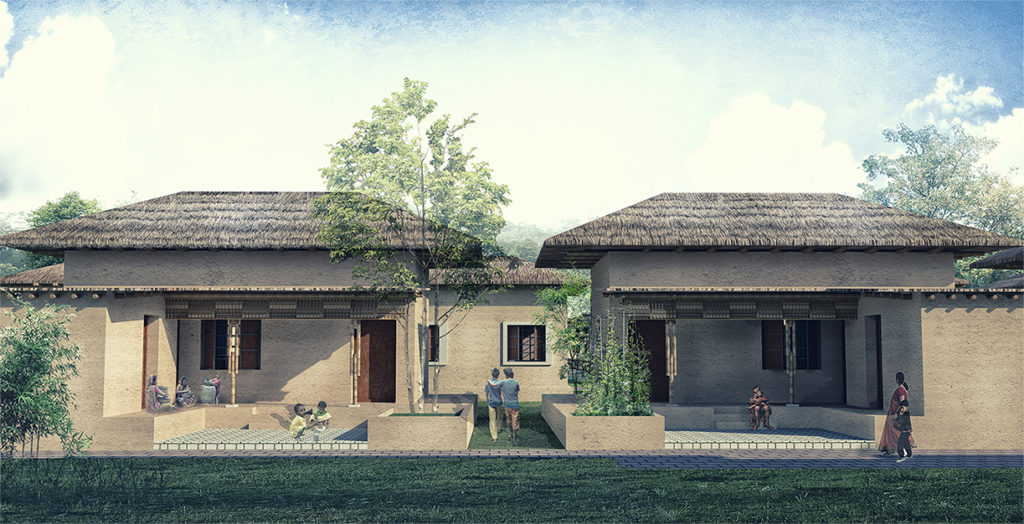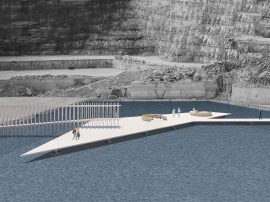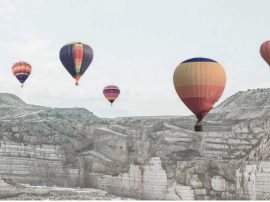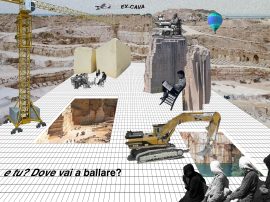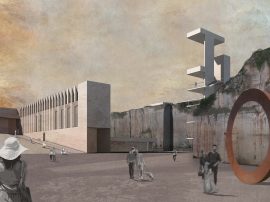In 1985 Geological Survey of Bangladesh (GSB) discovered high-quality bituminous coal spread over an area of 6.68 Square Kilometers at a depth ranging from 118 to 509 meters in Barapukuria under Parbatipur Upazila in the district of Dinajpur. During 1987-1991 a UK based company M/S Wardell Armstrong carried out the Techno-Economic Feasibility study on this coal reserve under ODA financial support. After the approval of the project, a construction contract under a supplier’s credit of US$194.91 Million Barapukuria Coal Mining Company Limited was formed and registered as a company on August 04, 1998 under the Companies Act 1994.
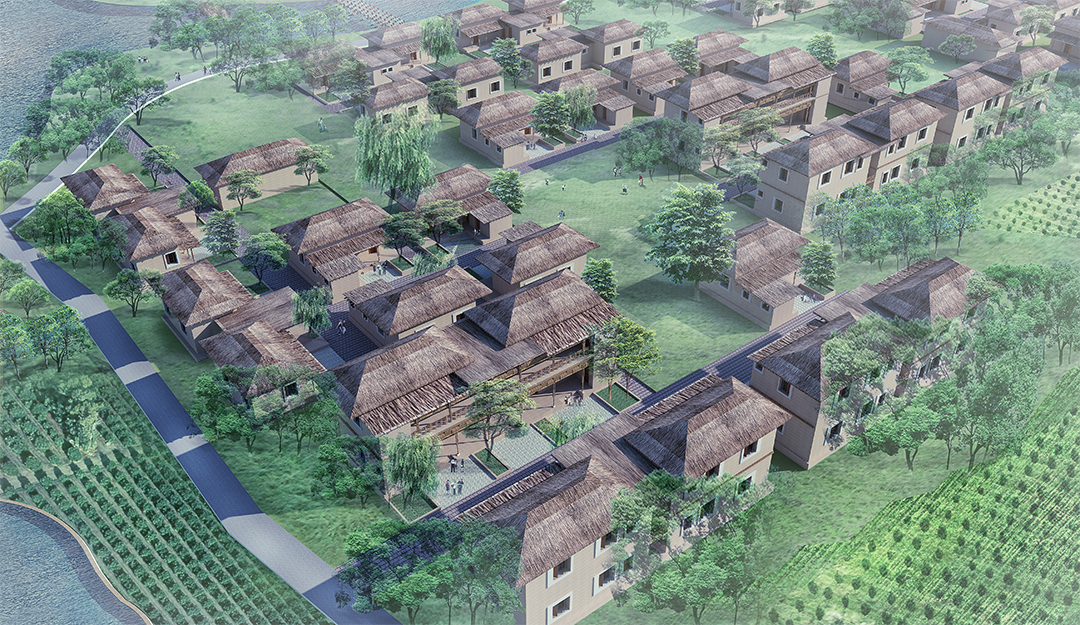
DESIGN STATEMENT: To Create a Sustainable Living Environment For Coal Mine Workers. Boropukuria is the largest coal mine resource in Bangladesh. Boropukuria coal mine village is a pastoral village of Northern Bangladesh situated beside Boropukuria Coal Mine factory. Approximately 1000 workers work day and night in this factory where 50% of these labor force live for from the factory. During the natural disaster and transportation problem it is quite hard to reach home for them. Besides the workers can not afford their family with the income they get from the company. Considering all these circumstances and ensuring worker's basic needs BCMCL(Boropukuria Coal Mine Company Limited) takes an initiative to build an ideal living for coal mine workers. The main goal of the project is to achieve dignity, security, safety, peace and happiness. I have designed a sustainable village whose life is above 35 years. Here the worker can develop their lifestyle through household farming, handicraft, and shops besides working on factories. The preservation and development of the essence of the vernacular architecture of rural Bangladesh are also equally important. To create an ideal village, I have defined primary, secondary and Tertiary spaces by which people can interact with daily activities. The design moreover inspired by ancient Bangla tradition which called 'Dig and Mountain.
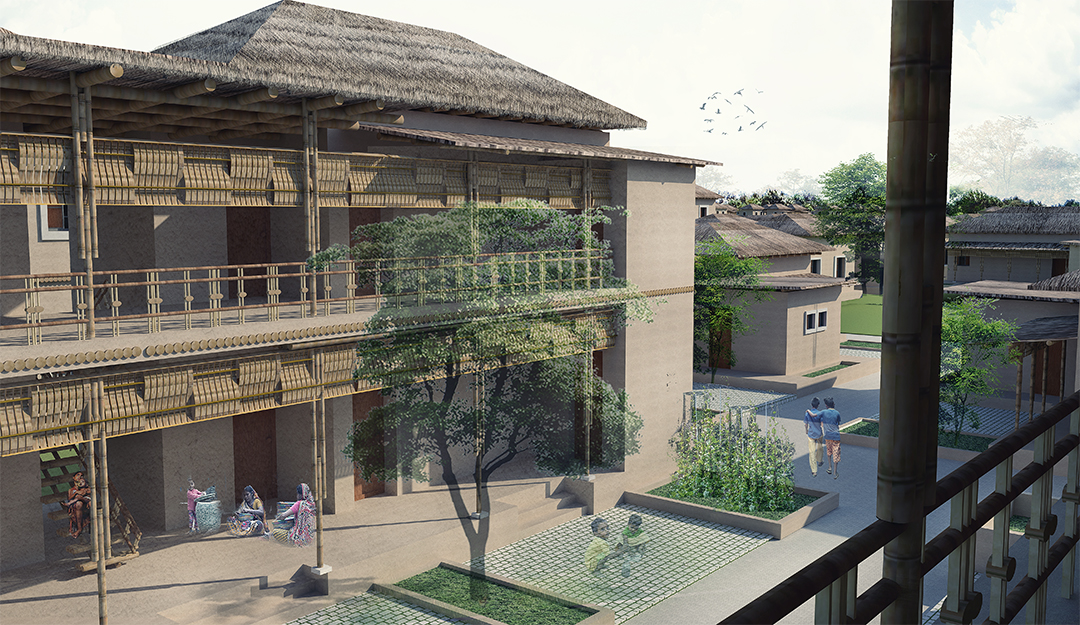
The aim of the project is to build a comfortable housing which comes from their root and culture. A traditional rural "Bengali House's" an inheritance from the past, exists in the present and has a potential for the future. The traditional house in its basic form is a cluster of small 'shelters' or Huts around a central courtyard called the 'Uthan'. The individual house may constitute the Following categories: 1. The outer house (Outhouse or Baithak ghar) 2. The inner house (dwelling unit or Ghar) 3. Kitchen 4. The cattl+shedLarger houses may also include the following: 5. the storehouse (fuel storage, granary) 6. The rice husking shed or 'dhekigha. Materials and technologies are simple, including locally compress earth block with bamboo reinforcement, local thatch, polythene sheet and bamboo rafter using the roof, bamboo column with combination connection and bamboo culms. Architectural intervention in the rural areas at the vernacular level. Ensure a Certain Lifestyle Policy and Integrated decay Process. This project is thus an opportunity to discourage thoughtless imitation of urban architecture in rural neighborhoods and might work as an effort to achieve cultural sustainability from the core of the rural environment in Bangladesh. Providing a better lifestyle and ensure the basic need, appropriate for any rural scenario of our country. This project is significant because it allows architectural intervention in rural areas at the vermicular level.
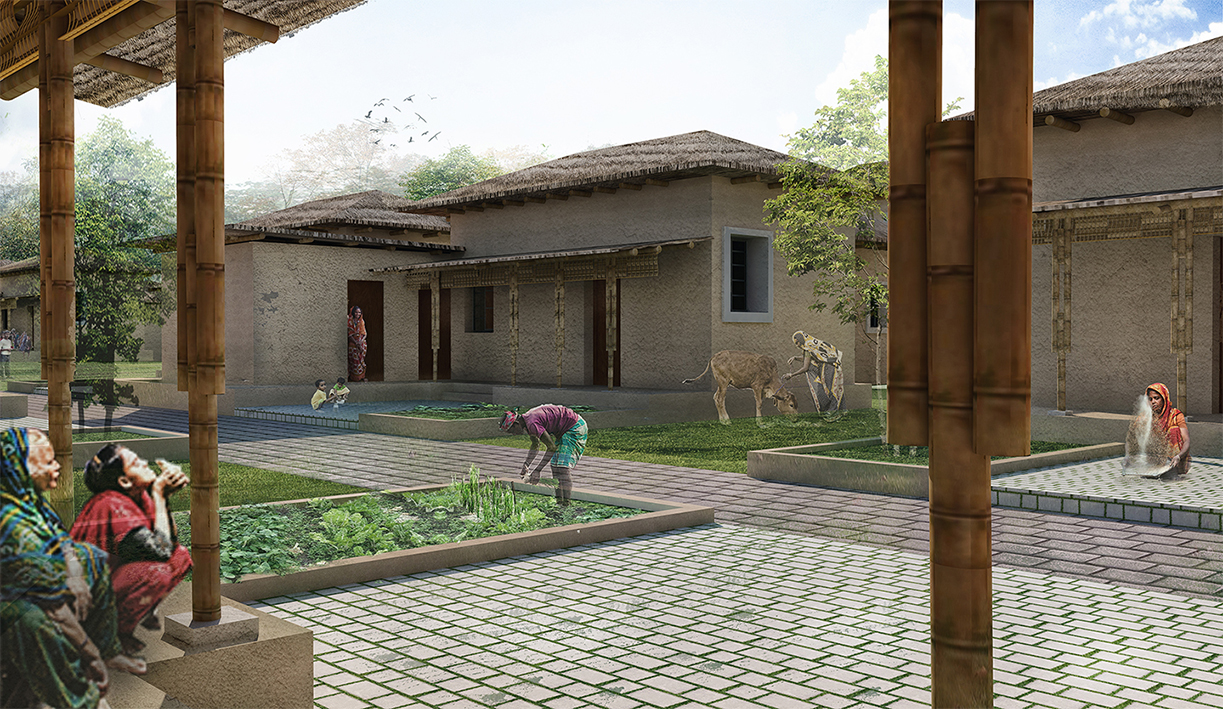
The Board:
